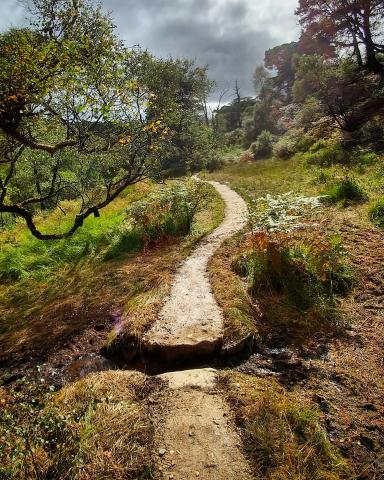Access and Recreation Officers are responsible for managing public access, often in a defined geographical area or along a defined route. Part of their work may include undertaking access surveys monitoring use, damage and obstructions on public rights of way, sites and the wider access network, negotiating improvements with landowners.
They may also carry out some remedial maintenance, or develop programmes of work for colleagues, volunteers or contractors. There may be times when strong negotiation skills are required to resolve conflict and meet the needs of both walkers and landowners.
Many Access and Recreation Officers also advise visitors about safe and responsible access to the countryside and lead guided walks and help to develop self-guided trails and related publications. Others focus specifically on the legal definition of public access, processing formal changes to the network, researching alignments and status of routes, and maintaining a Definitive Map.
Working Conditions
Access and Recreations Officers typically work a standard full-time week. However, the hours may vary, and weekend or Bank Holiday work can be required. There may be part-time, voluntary, self-employed and consultancy opportunities available. The ability to work without close supervision, and to manage conflicting priorities, is also often required.
Regardless of the season, work can be inside or outdoors in all weathers. Depending on the area covered, there may be a lot of travelling between different sites, so a driving licence is usually needed.
Officers are likely to be provided with protective clothing, tools and equipment required to undertake the job.
Salary
Salaries vary with experience, qualifications and between companies, but here's a guide to what you can expect.
£16,000
£27,000
Getting started
Experience is an advantage, but training is usually provided.
What employers are looking for
- People who are interested in the countryside who appreciate the different needs of public access by a wide range of users
- People who are aware of management of land and potential issues or conflicts.
What experienced workers can do
- Consult to improve or protect the conservation or recreational value of land or marine sites
- Provide environmental advice on proposed developments
- Assess the characteristics of land-based and environmental sites
- Plan and conduct field surveys Survey and report on the condition of the environment
- Protect the environment through legal enforcement
- Promote responsible public use of outdoor sites
- Consult and work with the local community
- Identify species
- Interpret data from field surveys and report on findings
- Facilitate outdoor experiences to meet the recreational needs of the participants
- Produce interpretive media
- Deliver environmental interpretive activities.
Personal qualities you should have
- Able to communicate well with different people
- Able to solve problems
- Able to work in a team or on your own
- Mobility
- Flexibility.
Next steps
The amount of people working in this area is expected to grow as there is an increasing awareness of promotion and awareness of access. Opportunities can be found in both urban and rural areas all over the UK. However, competition for paid work is intense with many employers requiring a degree for entry into this career along with relevant countryside and access management experience.
Jobs can be found with local authority countryside services or highways departments, National Park Authorities and in National Trail management. Charitable trusts, such as The Woodland Trust and The National Trust also have paid and voluntary positions. There are also jobs within some access organisations, private companies, land management organisations (e.g. National Farmers’ Union, Forestry Commission) and legal or consultancy firms.
With experience and relevant qualifications it is possible to progress to management or more senior positions. The career structure will vary depending on the size of the organisation. It may be necessary to seek opportunities with an alternative employer in order to progress. Self-employed contract work, both on a practical and consultancy basis may also available.
There is also the possibility of specialising in most areas of the work such as Definitive Map or Enforcement, depending on the organisation.
Useful links
Loch Lomond and the Trossachs National Park
Scottish Environment Protection Agency
